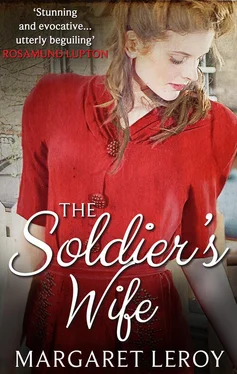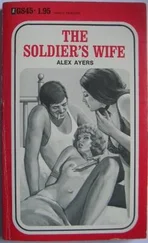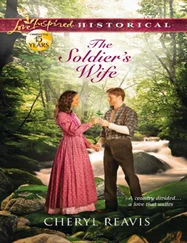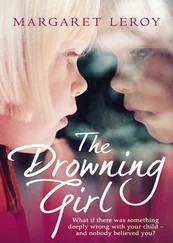The shadows lengthen, the colours of my garden begin to recede; till the shadows seem more solid, more real, than the things that cast them. I can hear a nightingale singing in the Blancs Bois. There’s a sadness to evenings on Guernsey sometimes, though Eugene could never feel it. When I first came here, he took me on a tour of the island, and we stopped on the north coast and watched the sun go down over L’Ancresse Bay—all colour suddenly gone from the sky, the rocks black, the sea white and crimped and glimmering, the fishing boats black and still in the water, so tiny against that immensity of sea—and I felt a surge of melancholy that I couldn’t explain. I tried to tell him about it, but it didn’t make any sense to him: he certainly didn’t feel it. I had a sense of distance from him, which soon became habitual. A sense of how differently we saw the world, he and I. But I feel bad even thinking such things, of the many ways in which we were unhappy together, now that he’s gone.
There’s a sudden scatter of birds in the sky; I flinch, my heart leaping into my throat. Little things seem violent to me. And in that moment my decision is made. I am clear, certain. We will go tomorrow. Blanche is right. We cannot just stay here and wait. Terrified by the snap of a twig or a flight of startled birds. We cannot.
I go to the shed and take out my bicycle. I cycle up to the Rectory to put our names on the list.
I take Evelyn her tea and toast in bed, the toast cut in exact triangles, as she likes it. She’s sitting up, ready and waiting, in the neat bed-jacket of tea-rose silk that she’s worn each morning for years, her back as straight as a tulip stalk. Her face is deeply etched with lines, and white as the crochet trim on her pillowcase. Her Bible is open on her bedside table, next to a balaclava that she’s knitting for the Forces. She’s always knitting. A tired, nostalgic scent of eau-de-cologne hangs about her.
I sit on the bed beside her. I wait until she has drunk a few sips of her tea.
‘Evelyn—I’ve decided. I’m going to go with the girls.’
She doesn’t say anything, watching me. I see the puzzlement that swims in her sherry-brown eyes. As though this is all news to her—though we’ve talked it through so many times.
‘I’m taking you to Les Ruettes. You’re going to live with Frank and Angie. Angie will look after you once the girls and I have gone …’
‘Angie le Brocq goes out in the lanes with her curlers in,’ she says.
Her voice is firm, as though her disapproval of Angie’s behaviour gives her some certainty in this shifting, troubling world—something to cling to.
‘Yes, she can do,’ I say. ‘But Angie’s got a good heart. You’ll be well looked-after. I’m taking you there after breakfast, as soon as I’ve packed up your things.’
Sometimes I hear myself talk to her as though she were a child. Spelling everything out so carefully.
She looks shocked.
‘No. Not after breakfast, Vivienne.’ As though I have said something slightly obscene.
‘Yes, it has to be straight after breakfast,’ I tell her. ‘As soon as I’ve packed a bag for you. Then the girls and I will be going to town to get on the boat …’
‘But, Vivienne—that’s really much too soon. I don’t want to go today. I really don’t feel ready. I’ve got one or two things that I really need to sort out. I’ll go next week, if that’s all right with you …’
I’m full of a frantic energy: it’s such a struggle to be patient. Now I’ve decided, I’m panicking that we’ll get to the harbour too late.
‘Evelyn, if we’re going, it has to be today. They’re sending a boat from Weymouth. But after today there may not be any more boats. It’s too dangerous.’
‘It’s not very helpful of them, is it? To rush us all like this? They have no consideration, Vivienne.’
‘The soldiers have left,’ I tell her. ‘There’s no one here to defend us …’
I don’t say the rest of the sentence: And the Germans could walk straight in.
‘Oh,’ she says. ‘Oh.’ And then, with a light coming suddenly into her face, the look of one who has found the answer: ‘Eugene should be here,’ she says.
‘Eugene’s away fighting, remember?’ I say, as gently as I can. ‘He went to join the army. He’s being very brave.’
She shakes her head.
‘I wish he were here. Eugene would know what to do.’
I put my hand on her wrist, in a gesture of comfort that’s empty, utterly futile—because what solace can I offer her when the son she adores has gone? I feel how frail she is, her limbs thin and brittle as twigs. I don’t say anything.
I make the girls their breakfast toast. I’m looking around me, aware of all the detail of my kitchen—the tea-towels drying in front of the stove, the jars of raisins and flour. On the wall there’s a print by Margaret Tarrant, a Christening present from Evelyn for Blanche—the Christ Child in his crib, with angels all around. It’s a little sentimental, yet I like it, for the still reverence of the angels, and the wonderful soft colour of their tall fretted wings that are the exact smoky blue of rosemary flowers. I wonder if I will ever see these things again—and if I do, what our life will be like, in that unguessable future. I say a quick prayer to the angels.
The girls come down to the kitchen, bleary, smelling of warm bedclothes, rubbing the sleep from their eyes. Alphonse sidles up to Millie and walks in small circles round her. She bends down to stroke him, the morning sun shining on her dark silk hair, so you can see all the reddish colours in it.
‘Right, girls. We’re going,’ I tell them. ‘We’ll get the boat today. It’ll take us to Weymouth and from there we’ll take the train to London and stay with Auntie Iris. I put our names on the list last night.’
Blanche’s face is like a light switched on.
‘ Yes. ’ There’s a thrill in her voice. ‘But you could have decided earlier, Mum, then I could have washed my hair.’
‘You’ll have to pack quickly,’ I tell them. ‘As soon as you’ve finished breakfast. You’ll need underwear and your toothbrushes, and all the clothes you can fit in.’
I’ve put out a carpet bag for Millie, and for Blanche a little leather suitcase that was Eugene’s. Blanche looks at the suitcase, appalled.
‘Mum, you’re joking.’
‘No, I’m not.’
‘But how can I possibly get everything in there?’
London to Blanche is glamour—I know that. We went to stay with Iris for a holiday once—when Blanche was six, four years before Millie was born. Ever since that holiday, London has been a promised land to her, a dream of how life could be, ought to be. Once it was a dream of Trafalgar Square, with its dazzling fountains and pigeons, of the Tower of London, of seeing the chimps’ tea-party at the zoo. But now that she’s almost a woman, it’s a dream of men in uniform—resolute, square-jawed, masterful—and tea in the Dorchester tea-room under a glittery chandelier: a dream of cakes and flirtation, with maybe a swing band playing Anything Goes. She wants to take all her very best things, her nylons, her coral taffeta frock, her very first pair of high heels that I bought for her fourteenth birthday, just before she left school. I understand, but I feel a flicker of impatience with her.
‘You’ll have to, Blanche. I’m sorry. There won’t be much room on the boat. Just put in as many clothes as you can. And you’ll need to wear your winter coats.’
‘But it’s hot , Mum.’
‘Just do your best,’ I say. ‘And, Blanche, when you’ve finished, you can give Millie a hand …’
‘No, she can’t. I can do it myself,’ says Millie.
Читать дальше












